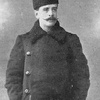
Riccardo Drigo Sheet Music
- Born: 30th June 1846
- Died: 1st October 1930
- Birthplace: Padua, Italy
Riccardo Eugenio Drigo was an Italian composer of ballet music and Italian opera, a theatrical conductor, and a pianist. Drigo is most noted for his long career as kapellmeister and Director of Music of the Imperial Ballet of St. Petersburg, Russia, for which he composed music for the original works and revivals of the choreographers Marius Petipa and Lev Ivanov. Drigo also served as Chef d'orchestre for Italian opera performances of the orchestra the Imperial Mariinsky Theatre. During his career in St. Petersburg, Drigo conducted the premieres and regular performances of nearly every ballet and Italian opera performed on the Tsarist stage. Drigo is equally noted for his original compositions for the ballet, his adaptations of already-existing scores, and the myriad of supplemental music he composed ad hoc for insertion into already-existing ballets. Many of these pieces are still performed regularly today. Among Drigo's original scores for the ballet, he is noted for Le Talisman (Petipa, 1889); La Flûte magique (Ivanov, 1893); Le Réveil de Flore (Petipa, 1894); and Les millions d'Arlequin (a.k.a. Harlequinade) (Petipa, 1900). Drigo's score for Les millions d'Arlequin spawned a popular repertory piece, the Serenade, which the composer later adapted into the song Notturno d'Amour for Beniamino Gigli. Drigo's work on Tchaikovsky's score for Swan Lake — prepared for the important revival of Petipa and Ivanov — is certainly his most well-known adaptation of existing music. Drigo's supplemental Pas de deux of 1903 for the ballet La Tulipe de Haarlem spawned another popular repertory piece, the Valse Bluette, which is most often performed in an arrangement by the great violinist Leopold Auer. There are many pieces set to the music of Drigo that are still performed today, many of which are considered cornerstones of the classical ballet repertory. Many of these pieces were arranged long after Drigo left Russia, and/or were set to music fashioned from his full-length scores: Le Corsaire Pas de Deux; La Esmeralda Pas de Deux; La Esmeralda Pas de Six; the Diane and Actéon Pas de Deux; The Talisman Pas de Deux; the Harlequinade Pas de Deux; and the Ocean and the Pearls Pas de Trois. Many of Drigo's supplemental variations, etc. can be found in such repertory pieces as the Paquita Grand pas classique, La Fille mal gardée pas de deux and the ballets La Esmeralda, The Fairy Doll, Le Corsaire and La Bayadère.